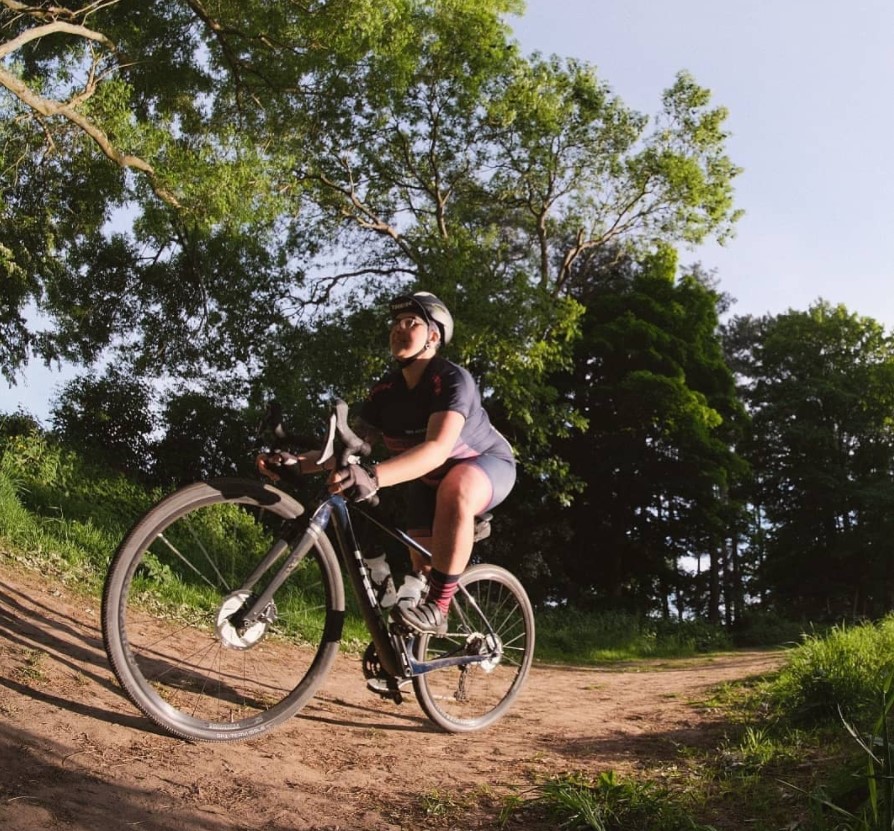‘The wheels are my job, but nothing makes me feel better than investing in people’ - in conversation with Anne Hed
We chat to the Hed Wheels CEO about mentoring, legacy, and being a woman in a male-dominated industry
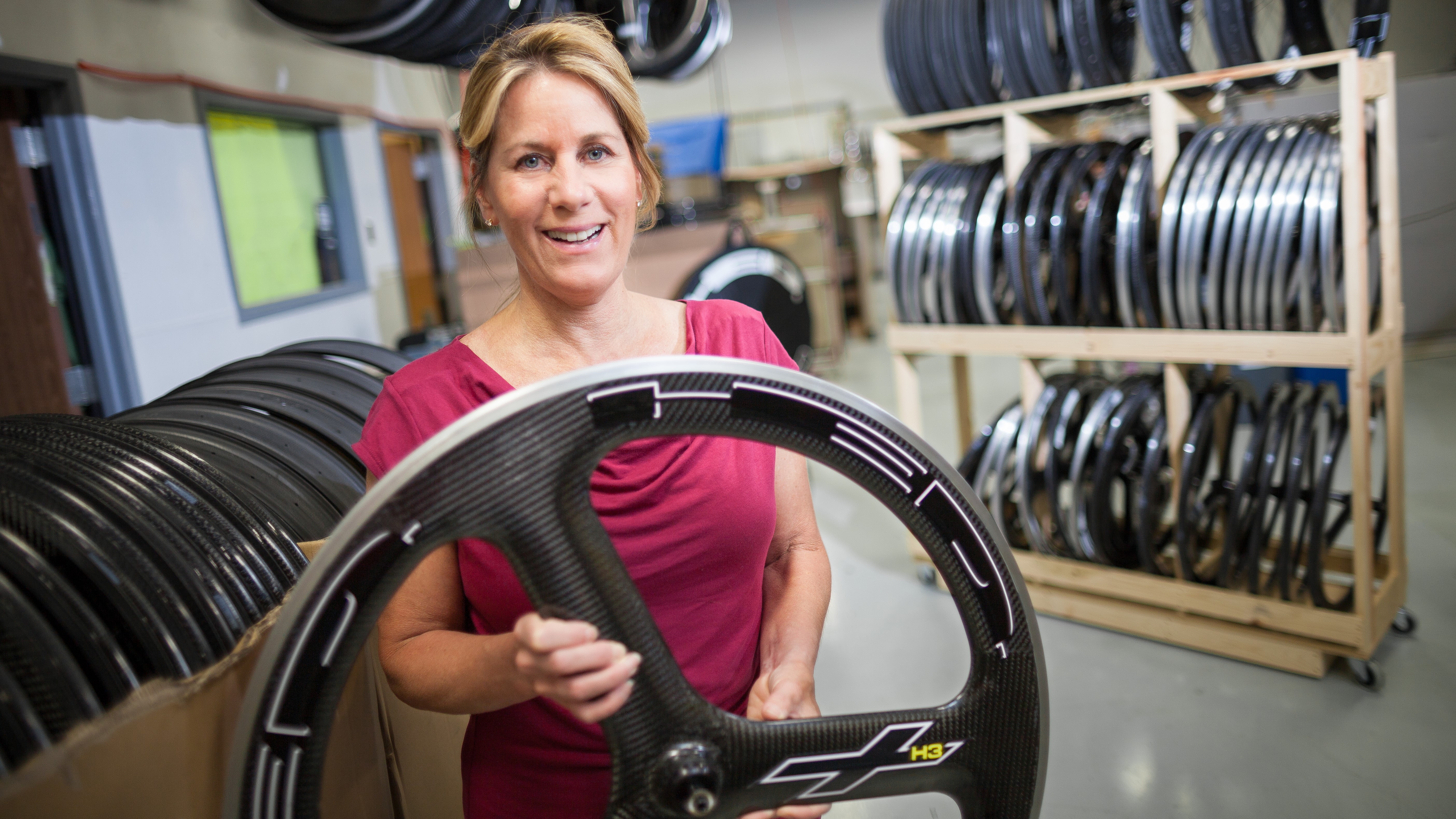
As a female CEO in a very male dominated industry, Anne Hed is a rare breed. Co-founding Hed Wheels back in 1984 with her husband Steven, she fully took on the mantle of the company when he passed away suddenly eight years ago.
The story of their meeting, and the subsequent founding of Hed Wheels, is a beautiful one. Steven was the owner of a bike shop in Minnesota, and Anne entered as a customer and Hawaiian Ironman qualifier without the money to pay her entry fee. After chatting, Steven gave her a $100 cheque and a bike, and she went on to compete in several races, eventually winning a Subaru that she sold for $14,000, which she used to co-found Hed Wheels with Steven.
Cyclingnews writer Mildred Locke sat down with Anne to talk about what it's like being a female CEO in a male-dominated industry, covering everything from how Hed Cycling continues to produce some of the best gravel wheelsets on the market, to how the company supports a diverse range of athletes.
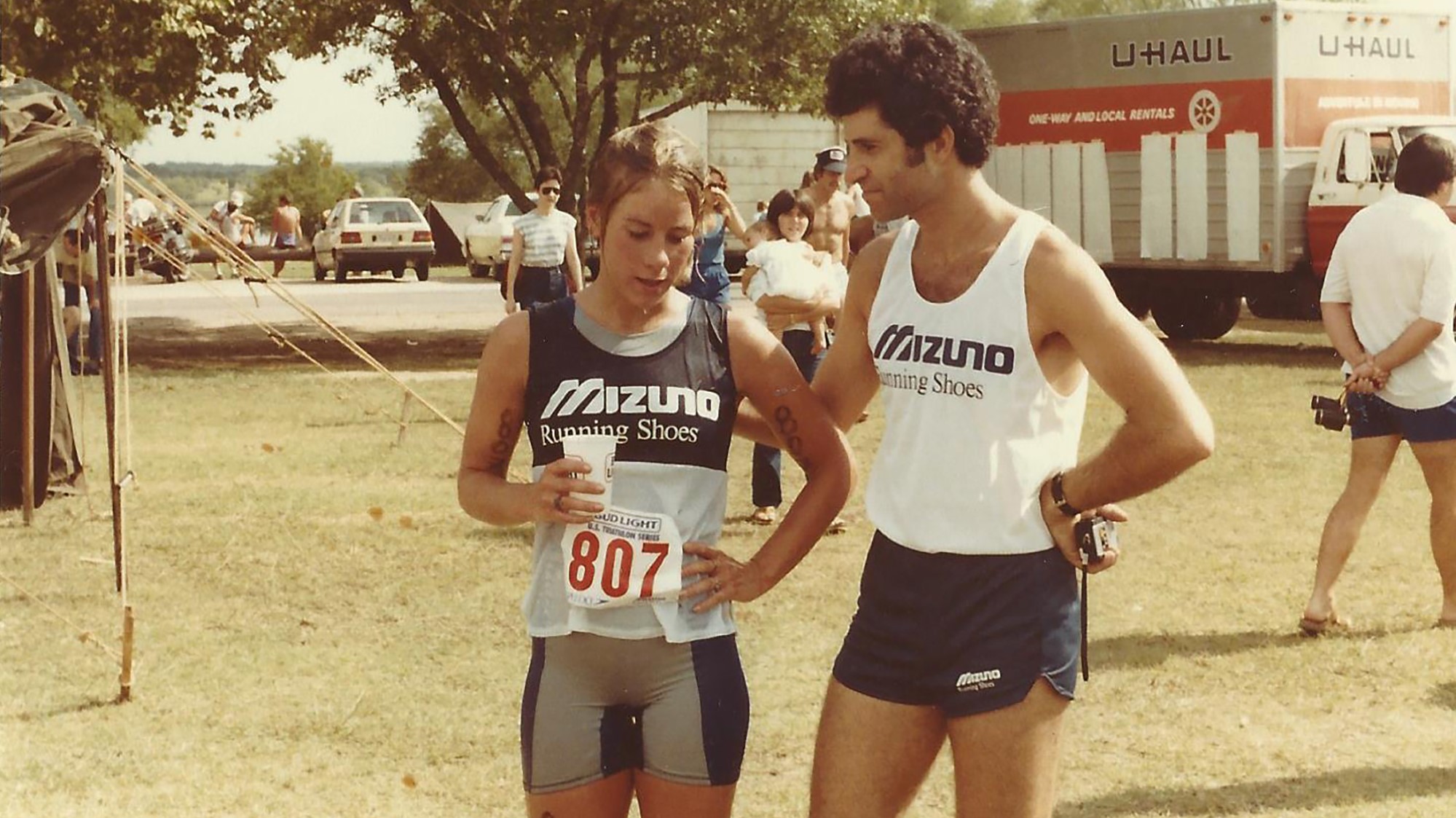
ML: How did it feel, taking over and stepping into those shoes?
AH: I was very comfortable not being the face of the company, so I had to put myself out there, get uncomfortable, and get afraid. I had to do it to give myself the strength to carry on and move forward. Now Hed is a certified women-owned business, and it was a challenge to get that seal, so I joined different groups, including CEO groups and the Bicycles For People board and tech committee. I’m now sitting amongst the tables of the Treks, the Specializeds, the Cannondales, the Shimanos, and the SRAMs.
I think being an athlete — I did my first triathlon in the early ‘80s — has helped me because I, along with my girlfriend, would be the first two out of the water without a changing tent, beating all the guys out. That definitely prepared me for walking into a room with a lot of men and holding my own.
But honestly, the cycling industry has welcomed me, and I have felt so supported. I think this is what you need to hear as a female CEO in the cycling industry (not that there are many right now), that there are positives out there. Of course, we could get into the gender pay gap and all that, and yes tons of work needs to be done there, but as far as the open doors I’ve had, they’ve been as wide open as possible.
Get The Leadout Newsletter
The latest race content, interviews, features, reviews and expert buying guides, direct to your inbox!
ML: How is Hed addressing the gender pay gap, and working towards a more inclusive industry?
AH: We’ve put so many resources into our people, and we have an incredibly diverse range of people here, from the staff to the athletes we support. We have over 30 per cent women in the workforce, in manufacturing. My Head of Operations, my International Sales Representative, and the person in charge of purchasing are all women. As far as the athletes that we help, we have Rachel McBride, the first non-binary pro triathlete, Sika Henry, the first African American pro triathlete, and Cody Beals, so we’re a safe space for an openly gay man.
I think this is what you need to hear as a female CEO in the cycling industry (not that there are many right now), that there are positives out there.
Anne Hed
There are very few firsts in this world, and I think we’ve been at the forefront. Now we have Chris Nikic, who is the first person with Down syndrome to complete an Ironman. I'm so excited to see some of these people in the sport. And as far as the pro women who have had children, who we still sponsor, we've got Susie Chatham, who's from the UK, Michelle Vesterby, who's the “smiling Danish”, she's pregnant again with her second. And Jocelyn McCauley, who is a woman with two children, and we support them with equipment and money.
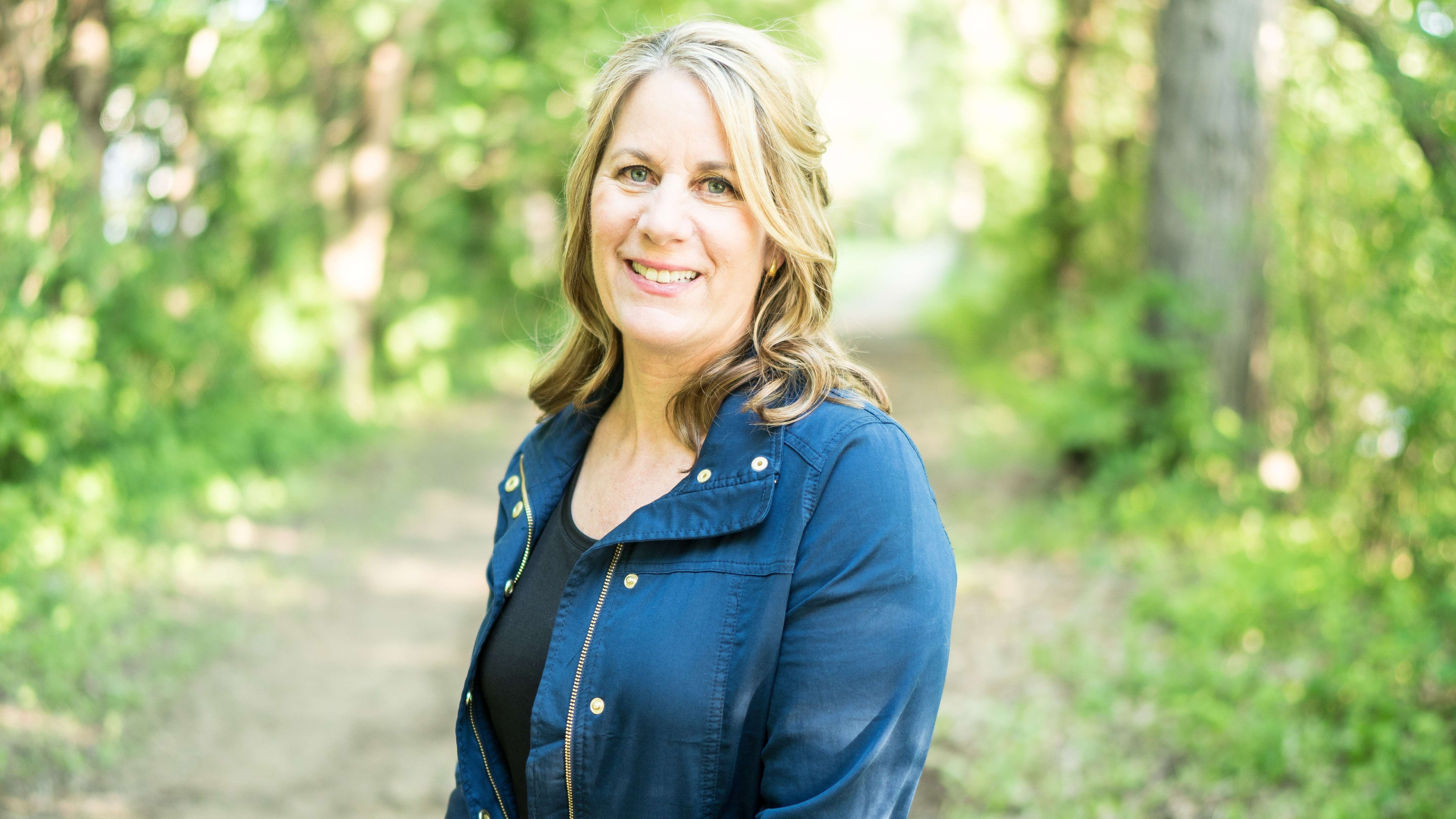
ML: What does it mean to you to be able to provide this level of support?
AH: It makes me feel that what I receive, I give. I think I am so blessed, and I want people to know that I miss Steven every day in my life, but he left me with so many beautiful people to surround me with — my family, my friends, and athletes who are so supportive of us — that I feel as if I can help them.
Hed Cycling started when Steven saw Francesco Moser set the hour record. So what has been a huge blessing for me is that I've been able to help others set hour records, for example, Lionel Sanders has the Canadian hour. And I was able to help Alex Dowsett set one. To be able to work with somebody like Alex and his wife and child, that's the stuff that gets me up.
Yes, Hed Cycling makes the fastest aerodynamic wheels in the world. The wheels are a part of it, but you know, my goal is to help whoever wants to set the hour record, female or male, that would be a blessing to me, and you know, that's kind of where it started.
ML: Sounds like it's come full circle.
AH: Yeah, it has, and I know we make bike wheels, but I keep on feeling like there’s this circle. The funny thing is, when we were helping Cinelli Chrome, the Red Hook racing team, I got this phone call saying they needed more wheels. And I'm like, “oh, jeez, you always need more wheels. Who are the wheels for?” and they said it was for Francesco Moser’s son, Ignacio.
So Francesco Moser had no idea that he was the inspiration to start the company. And I emailed his son Ignacio to say, “you need to tell your father this story”. I've never met either of them in person, and when I've gone to Eurobike I wonder if he’ll be there. So, one day my goal is to meet Francesco and give him a hug.
I want people to know that I miss Steven every day in my life, but he left me with so many beautiful people to surround me with — my family, my friends, and athletes who are so supportive of us — that I feel as if I can help them.
Anne Hed
ML: Have you ever experienced any level of imposter syndrome?
AH: I have, let's face it, there's always going to be somebody who doesn't know who you are. What I do is some days when the phone rings, I pick it up. I need a break from emails. And they have no idea, they think I’m the receptionist, and it’s kind of humbling.
I'll just pick up the phone and start chatting to people, and there have been times when they have asked something about wheel diameters or tyre pressures and I start answering them, and they’re really surprised that I know the answers.
I think we've got a way to go in the industry. I think that we've come a long way, but unfortunately, there are a lot more men still in this sport, even though again, it's gotten a lot better.
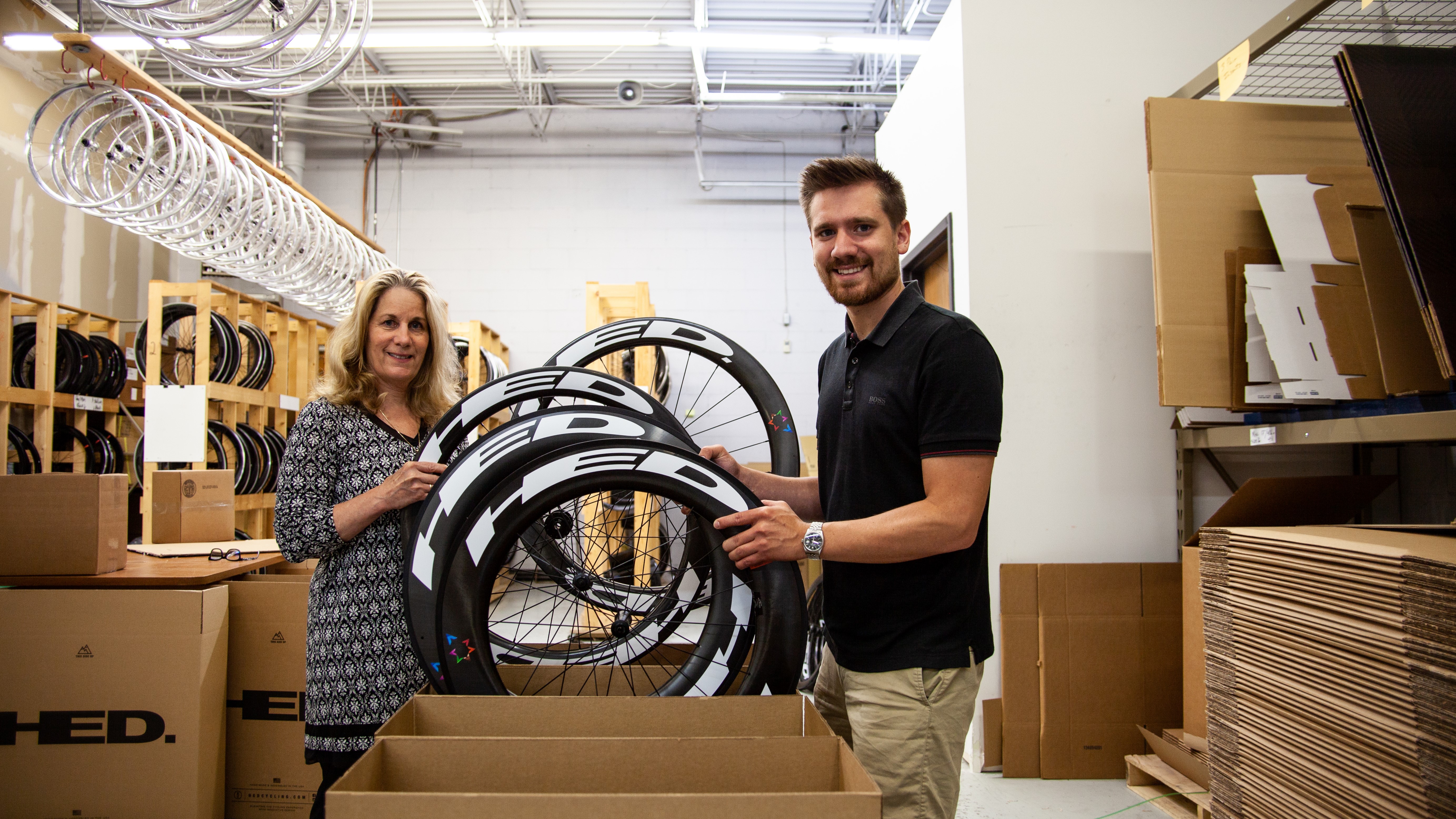
ML: Do you have any advice for women who are trying to work their way up within the industry?
AH: Call me
ML: Really?
AH: Oh, I have had several women in the industry who have had some frustrating times, call me, and I will pick up the phone and I will support women, I will mentor women who need some advice, because it can be lonely. Even though I have my family — I have my son working with me — and I have wonderful people here, there are some days where there's a weight on your shoulders, and you just need somebody to speak to.
I would encourage them to get involved with other women's groups. Here in Minnesota, there's Women Venture, and they are set up to help women start their own companies. And, it isn't just other women who can help. There are a lot of men in my life who have supported me and still mentor me. So it's just advice and wisdom you can get from people who have been in their shoes before.
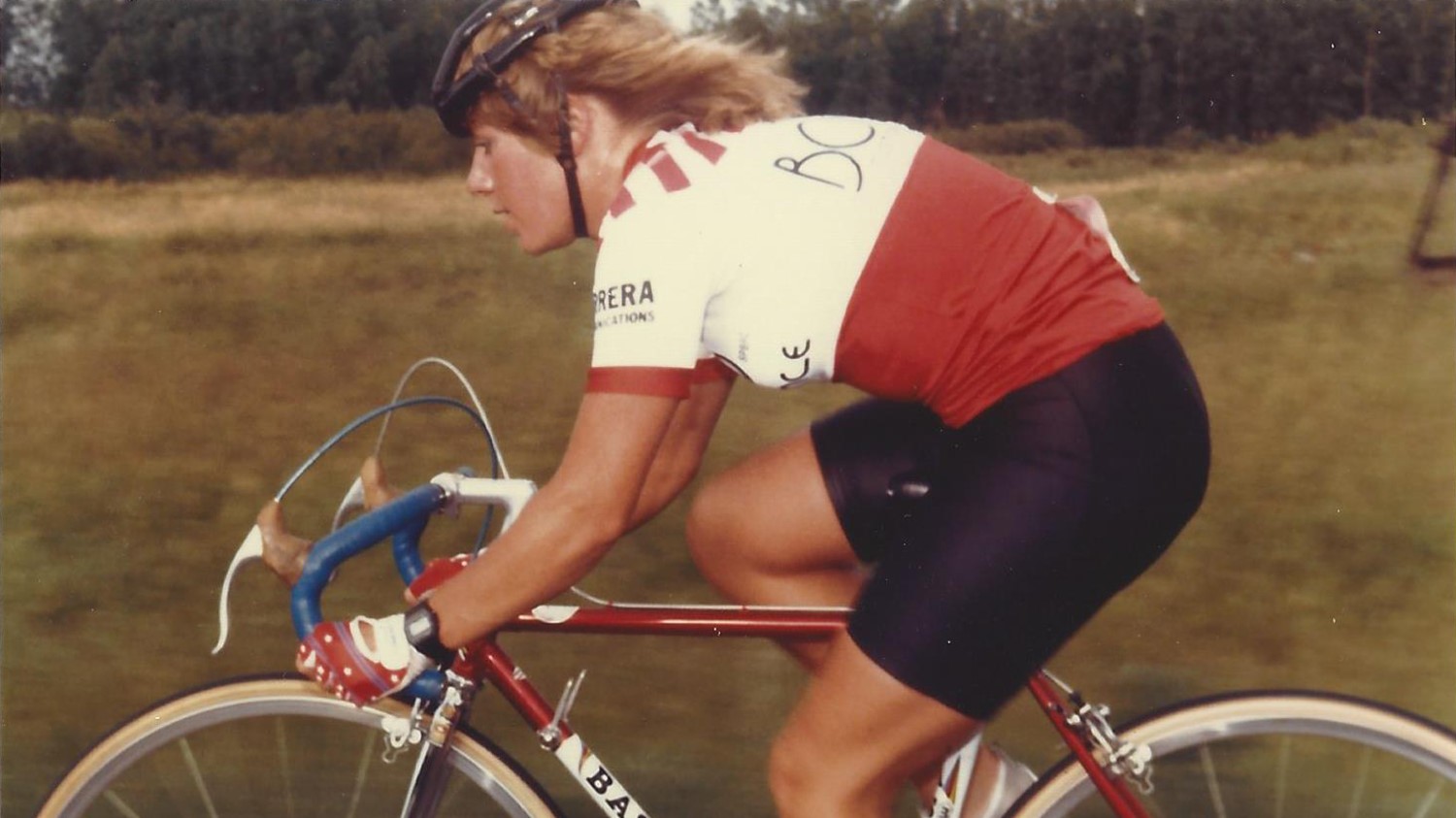
ML: From your experience of mentoring women, what are some of the biggest challenges they’re experiencing?
AH: It depends what role you're in. If it's a CEO running a company, and you're just trying to get the day-to-day going, right now what we're dealing with is supply chain issues. How do you keep the company running right now with that, and staffing issues? The climate that we're in right now in the world is something we've never experienced before. That one continues to come up. So there are the challenges of that, and working and finding a team of people to help.
I think you cannot do it alone. Investing in the people you surround yourself with is hugely important for this reason. Do not be afraid to ask for help. It's okay. It makes you a stronger person. Surround yourself with people who have gifts that you don't have. You need a team of people.
And it can be men and women, like I said, I'm so supportive of these women’s groups that I am involved with, and I'm right there with support, but again, there are so many men who have shaped my life and have been so positive. The wisdom that people have, and what they continue to help me with. Just be vulnerable, ask questions, and be curious of what is going on, and how you can get help from other people. Because there are people out there who really want to help, just like I love to mentor other women.
I think that had I known what I've learned now that I'm part of these CEO roundtables, and these women’s groups, I could have just prevented so many grey hairs! I think as women, we don't ask for help enough, because we see it as a failure. But we should all believe that we can work together as a team, and we need people.
ML: How important was it to have people around you when you stepped into the role of CEO?
AH: You know, with the circumstances of how it happened, it all happened so quickly. I had to move the entire facility, the factory and the people three weeks after Steven passed in the middle of the winter, and we had just received a very large order from Specialized, and I was a mother of two. I think I was in a fog for the first year or so. A year or so later I started experiencing the grief.
That's when I leaned on my CEO Roundtable — my mentors — and asked for help, and we had so many amazing things that came after that. We were able to build and go to Hawaii with the first P5X wheelset. We were able to help and support the US Women's pursuit team and get a silver in the Olympics. We saw our first gold medal with Gwen Jorgensen in the Olympics, and things like that are so beautiful.
But it’s not just that. When I first knew I was the CEO, and that I could run this company (and it happens to me still), is when I had an employee walk up to me and thank me. It happened last week. One of my employees said, “thank you for my bonuses this year, thank you for my health insurance, thank you for my 401k [pension], I can get my teeth cleaned, I had to have surgery, and I had time off and I'm healthy now.”
And I was almost in tears, he said it with such a genuine thankfulness that it isn't just about that seal. I've been blessed. I've had success with this company. We're growing again. Three years ago, it was a little flat, but with the pandemic, and now with the Emporia gravel wheels, we just keep making our wheels better.
That's what it's all about, it's the same fullness I get from the people who walk in here without a skill, without a college education necessarily, but the desire. And so every month we have a Friday where we bring in a guest speaker, either an athlete that we help, or we work with Free Bikes 4 Kidz, which is the largest non-profit for giving bikes to kids. It's so that they see what they're doing as a company.
It's not about just turning the TV on and seeing our athletes have an amazing race, it's about investing in the people too. Yes, the wheels are my job, but nothing makes me feel better than investing in people and giving them a skill.
I think you cannot do it alone. Investing in the people you surround yourself with is hugely important for this reason.
Anne Hed

ML: That hits on the whole idea of legacy. How would you like your legacy to look?
AH: I still say this, that I'm so happy that what Steve and I have done is bring joy to cycling. The joy that cycling has brought to me, and the joy of the inventions that came with Steve, when we were all riding in the backcountry roads. That was really where the infancy of gravel started, with the wide rims. So, it is bringing joy to cycling, whether it’s that weekend person who is now hopping onto those gravel rides, or the top-level Tour winners, whatever that joy is, I feel that we've been a part of it.
ML: What is Hed up to at the moment? How are you dealing with the supply issues and what’s your focus?
AH: I know this is gonna sound weird to some people, but it's super exciting to me: we’re getting a new five-axis CNC machine this month. It allows us to make more moulds and do most of the tooling in-house, which we’ve done for the most part over the years, but this will give us the accuracy that we need to keep competing and innovating.
So with that, we are working diligently on broadening our wheel range: more aerodynamic and deeper gravel wheels. We have several patents on our shape, and we're gonna go back to the wind tunnel and show how strong our wheels are and how well they perform.
We are on deck to make some more rims, and we hope to maybe have something at Unbound, but if not, we've got a couple new tubeless-ready designs that we're going to be showing more. There are some hour records out there that hopefully we can be involved in. So, we're riding the wave.
I’m also really proud of the fact that all our carbon wheels are made right here in Minnesota, so I think we have much shorter lead times than some of our competitors, who are struggling to get products from overseas.
But we’re going back to the tunnel. In fact, a lot of people don't know this, but we actually owned a wind tunnel at one point, but we realised that it was just too much of a challenge. So we’ve found a new home for it at a college, which I think Steve would have wanted, because we had other opportunities to sell it but again, it's that question of, “what can I give so that somebody can learn a skill?” That's what Steven was always known for, and his parents were the same. Beautiful. My hope is that one day I can put my wheels in a wind tunnel that we at one time owned.
ML: That’s so lovely, and again we come full circle back to Hed’s origin story with that $100 cheque.
AH: Yeah, so we're really excited. We're still hiring, and excited to show the industry that Hed’s here to stay. It's not going anywhere. It's getting in and using its patented technologies to make its products better. And I'm investing in staff to help me because I don't want to do it alone.
Mildred joined as Reviews Writer for Cyclingnews and BikePerfect in December 2020. She loves all forms of cycling from long-distance audax to daily errand-running by bike, and does almost everything on two wheels, including moving house, and started out her cycling career working in a bike shop. For the past five years she's volunteered at The Bristol Bike Project as a mechanic and session coordinator, and now sits on its board of directors.
Since then she's gone on to write for a multitude of cycling publications, including Bikeradar, Cycling Plus, Singletrack, Red Bull, Cycling UK and Total Women's Cycling. She's dedicated to providing more coverage of women's specific cycling tech, elevating under-represented voices in the sport, and making cycling more accessible overall.
Height: 156cm (5'2")
Weight: 75kg
Rides: Stayer Groadinger UG, Triban RC520 Women's Disc, Genesis Flyer, Marin Larkspur, Cotic BFe 26, Clandestine custom bike
